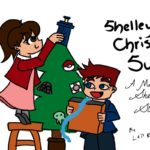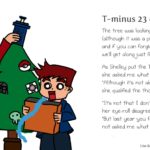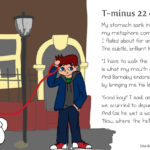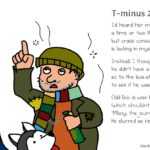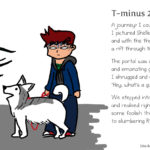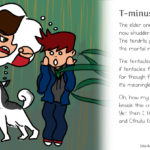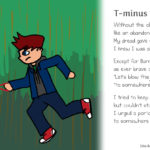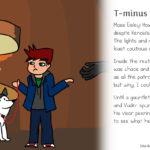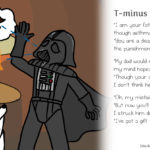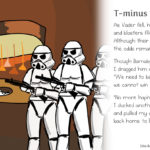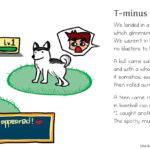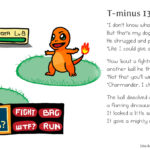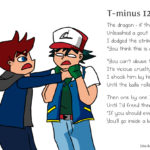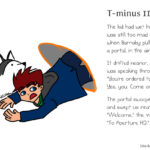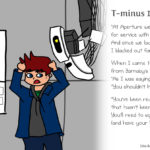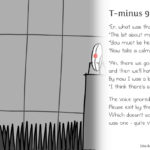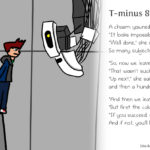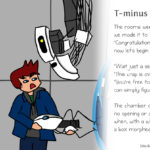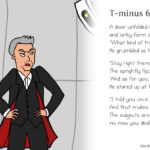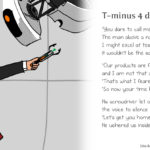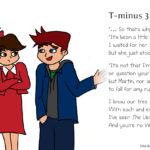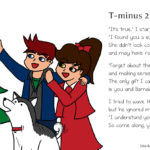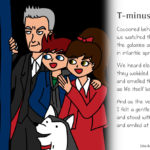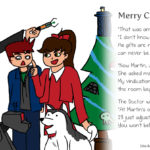There isn’t a magic formula… But what if there were? Was? Were.
It unites creatives from all disciplines (and I’m only a little sorry for the unfounded generalisation): a shudder that ripples through our veins when we receive another request for “a short biography.”
I mean, we’re writers, how hard can it be? We put our words out there every day, and we know ourselves at least as well as we know our characters… don’t we? Yet even the most dynamic, original writers will falter at this simple request, will defer to agents or delegate to formulaic checklists of information. Where do you live? What are your hobbies? Is anyone going to read this?
There’s a fantastic TED talk by Simon Sinek, a revolutonary marketing guru who has articulated what biography writers like Frank McCourt have always practiced: good biography, like marketing, isn’t primarily about the details.
The problem – for my generation, at least – has one root in education. From our earliest lessons, we learned to equate biography to description: describe your weekend, your pets, your holiday. While I’m hopeful that education has advanced beyond this lowest-common-denominator equation, its legacy remains alive and well.
So (if you’ve watched the video, or read one of Sinek’s articles), how do we apply the principle of “whyness” when faced with that primal instruction, “supply a short biography?”
We start by discarding the conventional approach. This is my current/old biography, agonised into the model I’ve known since primary school over several attempts:
Peter Ravlich lives in Auckland, New Zealand, and is a generally-described geek. When he’s not procrastinating/writing or working on client projects, he’ll be reading, hanging out with his wife and their perpetual puppy, gaming, hiking, cooking, motorcycling or kayaking.
Sometimes, he won’t be doing any of these things, for which he quite correctly blames the internet and a laudable lack of discipline.
Observe the usual checklist of location, hobbies and work ethic (used in this case because I didn’t have the alternative of “x novels” and “y awards” to throw in). I did touch on my geekiness and try to maintain a light tone: but in essence it remains a list of attributes framed to make it (a little) more palatable, and as brief as possible for the same reason.
Thankfully, author Michael J. Sullivan has done the hard work for me, providing his slides on Author Branding (PDF) from the Writer’s Digest Annual Conference in 2014, including his own before and after bios. Between his and Sinek’s advice, here’s my current revision:
My father is an avid reader, and my grandfather was a dramatic storyteller: there was no escape for me. I’ve been writing stories since at least age eight, when I remember submitting an action-adventure involving hidden doors, espionage and some rather colourful language for a homework assignment. The discovery that eight or nine pages of narrative trumped the couple of banned words in my teacher’s eyes was a powerful lesson, and I’m pleased to admit that my level of profanity has only increased since.
So I might have taken the wrong moral from that experience, but my love of reading and writing has been a constant, and I crave that moment when a word or a phrase trips some uncharted neurological circuit and delivers a moment of epiphany or emotion. Poetry and flash fiction offered a compact, easily managed channel for this addiction, before my wife arranged an intervention:
“You’re a better writer than you are a consultant, and I’m not big on poetry,” I misquoted. “Would you like to do a Stephen King, and take some time off to focus on some longer projects?”
My answer was evident – if daunting – and scaling down my communication business has allowed me to apply a more serious, structured approach to my writing, and has been an immeasurable gift. In the past year, I’ve published a quirky dark comedy and the first two parts of an urban fantasy serial, and have several other projects in the works. I’ve also been a prizewinning finalist in the Hugh Howey Booktrack Fan Fiction Competition, and I’m incredibly grateful for the opportunity to have people read and enjoy my work.
It’s longer, but it tells the essential story of my writing journey so far, starting with the why, and hopefully you’ll find it more enjoyable to read than the original version. I can say it was a lot more fun to write than the earlier version, and that’s my personal take-home point: if the art is feeling tedious, it probably is.
While not a magic formula, Simon Sinek’s shift in perspective is better still: a way to ditch the formula altogether, and refocus on the business of telling meaningful stories.
